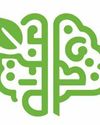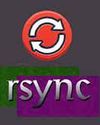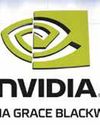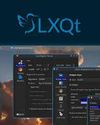
Today, there is a paradigm shift from traditional AI systems that use statistical and mathematical probabilistic algorithms to those that use machine learning (ML) and deep learning (DL) models. As per Gartner, there are 34 different branches of AI system design in existence today. AIOps in cloud operations, DataOps in data engineering, predictive analytics in data science, and MLOps in industrial applications are some of the examples of new age AI applications.
Ray Kurzweil coined the term 'singularity' in AI, which means bringing AI closer to human intelligence (or natural intelligence). To achieve the highest level of accuracy in ML training, modelling and functioning, it is of utmost important to ensure fairness and correct any bias in AIML implementation. Bias cannot occur on its own but is the result of human inputs during the various stages of developing the AIML-based solution.
When collecting data for training the model in ML, one must ensure the data is distributed fairly and that there is no bias. In the same way, when we label and group the data, train the model to simulate human-like thinking, deploy the model and interpret the results, we must do away with any pre-judgement or biased interests.
For example, bias with respect to race, income, sexual orientation, gender, religion, must be avoided when preparing the training data, training the system and interpreting the results from the ML execution.
There are many popular tools like IBM’s AI Fairness 360, Microsoft’s Fairlearn and Google’s What-if that are very useful to identify any bias in the training model and data collection.
Addressing bias in AI systems
Diese Geschichte stammt aus der April 2024-Ausgabe von Open Source For You.
Starten Sie Ihre 7-tägige kostenlose Testversion von Magzter GOLD, um auf Tausende kuratierte Premium-Storys sowie über 8.000 Zeitschriften und Zeitungen zuzugreifen.
Bereits Abonnent ? Anmelden
Diese Geschichte stammt aus der April 2024-Ausgabe von Open Source For You.
Starten Sie Ihre 7-tägige kostenlose Testversion von Magzter GOLD, um auf Tausende kuratierte Premium-Storys sowie über 8.000 Zeitschriften und Zeitungen zuzugreifen.
Bereits Abonnent? Anmelden

Red Hat unveils Red Hat OpenShift Virtualization Engine
Red Hat OpenShift Virtualization Engine is a new edition of Red Hat OpenShift that offers a dedicated solution for organisations to leverage the virtualisation capabilities already available within Red Hat OpenShift.

Spring AI: A Door to GenAI Heaven for Java Developers
Let's explore the Spring AI framework and its advantages, and look at how it is helping Java developers adopt AI.

Significant security vulnerabilities drive the release of Rsync 3.4
Rsync, the widely used utility for incremental file transfers and synchronisation, has released version 3.4. This update isn't packed with exciting new features but is instead critical due to several newly disclosed security vulnerabilities.

NVIDIA puts Grace Blackwell at every AI developer's fingertips
NVIDIA has introduced NVIDIA Project DIGITS, a groundbreaking personal AI supercomputer designed to empower AI researchers, data scientists, and students NVIDIA® NVIDIA GRACE BLACKWELL with the immense capabilities of the NVIDIA Grace Blackwell platform.

Top Tools for DevOps, Cybersecurity, and Cloud Management in 2025
In 2025, organisations will continue to rely on open source tools to retain a competitive edge. We look at why the best tools for DevOps, cybersecurity and cloud management will remain relevant and how best to integrate them into your organisation.

CREW: Open source platform to improve human-AI interaction
As human-AI collaboration deepens, critical questions arise: How should humans and AI complement one another? What kind of feedback enhances AI training? How can trust in AI be optimised to balance collaboration without over-reliance? Researchers at Duke University are addressing these challenges through CREW-an innovative platform designed to advance human-AI teaming.

Red Hat completes the acquisition of Neural Magic
Red Hat, Inc., has announced the completion of its acquisition of Neural Magic, a trailblazer in software and algorithms that accelerate generative AI (GenAI) inference workloads.

The Do's and Don'ts for Software Architects
Here's a list of best practices for software architects as well as the common mistakes they should try not to fall prey to.

openSUSE's Tumbleweed introduces Wayland support for the LXQt desktop environment
The openSUSE Project has announced that its Tumbleweed rolling release distribution now includes Wayland support for users of the LXQt desktop environment.

A Guide for Software Architects: Common Mistakes and Best Practices
Software architects play an invaluable role in the digital transformation of an organisation. To make a mark, they must imbibe certain qualities and avoid common errors.